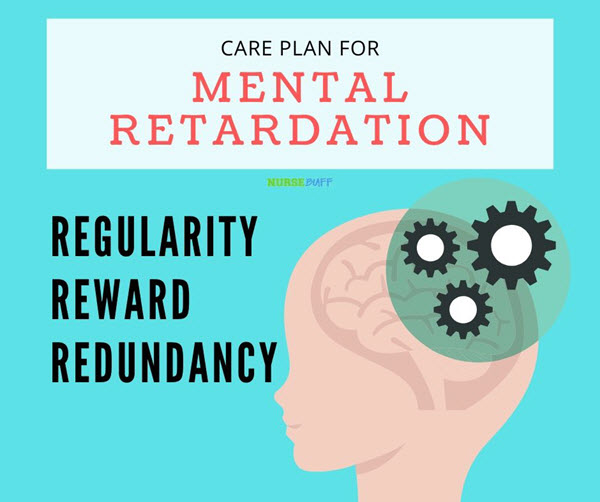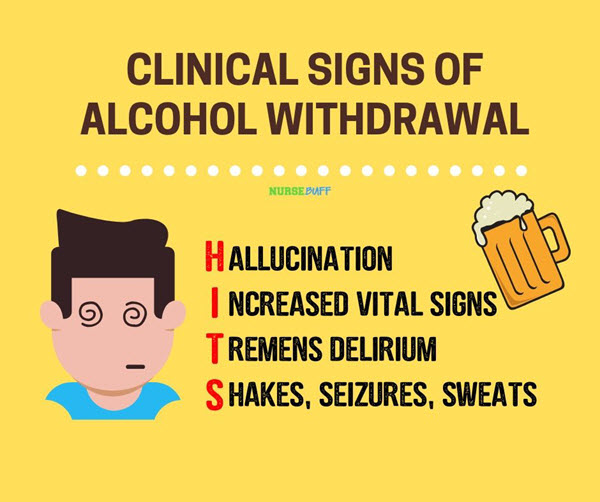Psychiatric nursing is one of the most challenging specialties in this profession. Apart from being physically exhausting, taking care of patients with mental health problems can also be mentally draining.
If you’re not prepared, the stress and burnout you’ll experience in this specialty can spell trouble for your well-being.
Also Read: 50 Mnemonics and Tricks Every Nurse Should Know
To help you prepare, here are some of the most awesome mnemonics and tricks that you should know.
1Types of Anti-depressants and Common Side-Effects
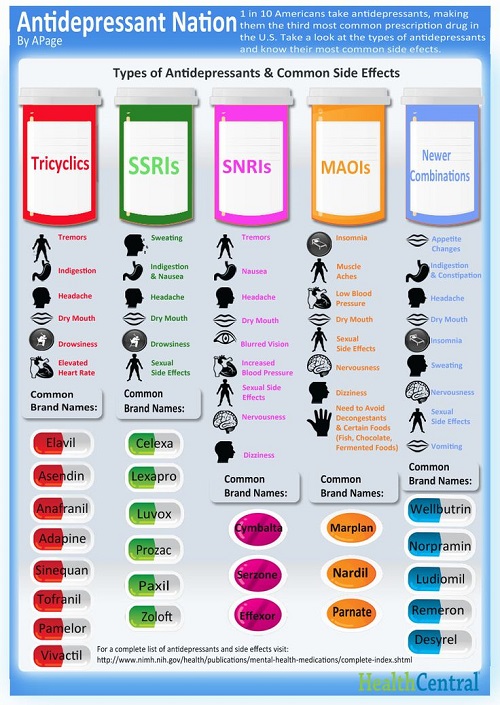
In general, there are five types of anti-depressants. You should watch out for these side-effects as most psychiatric patients take these drugs for long periods of time.
2SSRIs
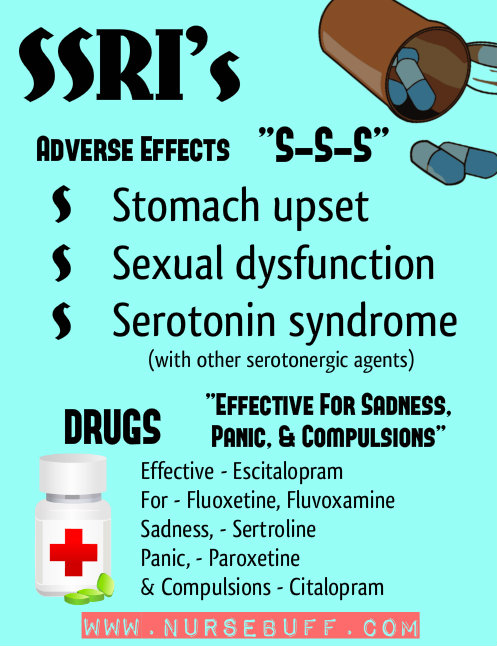
Selective Serotonin Reuptake Inhibitors or SSRIs are commonly used to treat anxiety disorders, depression, and some forms of personality disorders. When giving SSRIs to psychiatric patients, make sure remember this mnemonic.
3Actions of Antidepressants
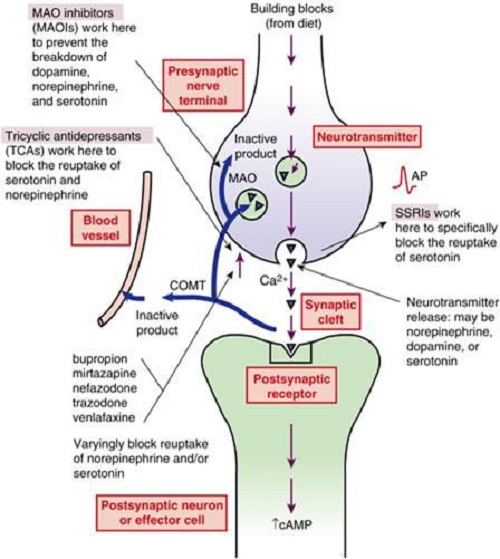
The way antidepressants work can be a bit hard to understand. This mnemonic can help you understand their mechanisms of action.
4Color of Drugs
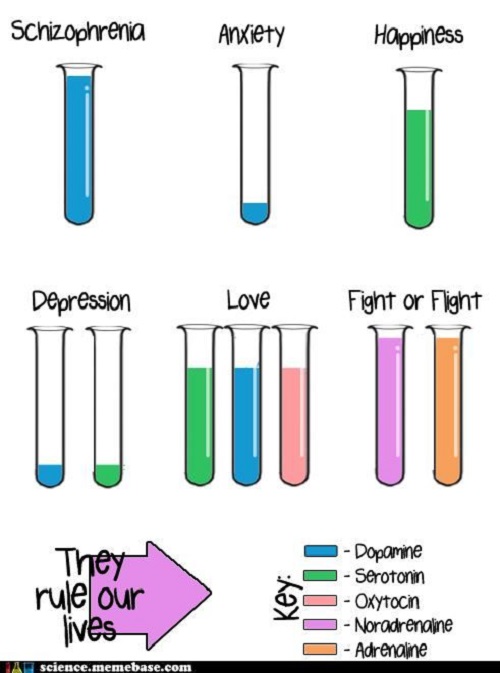
This diagram illustrates the psychological effects of different chemical neurotransmitters to the body.
5Psychiatric Drug Diagram
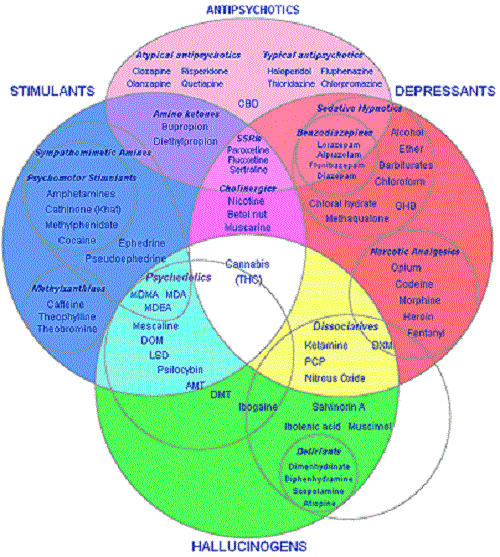
There are four main psychiatric drugs used nowadays: stimulants, antipsychotics, depressants, and hallucinogens. This diagram will help you understand their actions so you can properly guide and assess your patients during treatment.
Also Read: 50 Nursing Mnemonics and Acronyms You Need to Know Now
6Stress Reduction Methods
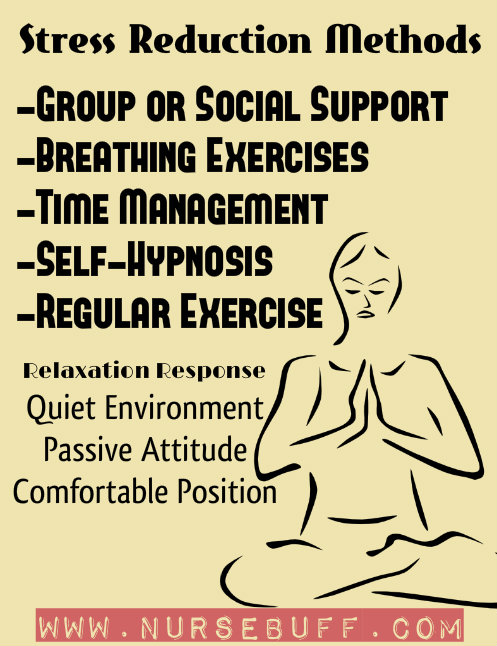
High levels of stress can negatively affect your patients’ conditions. Here are some of the best ways you can make your patients feel more relaxed and at ease.
7Psychobehavioral Role of a Nurse
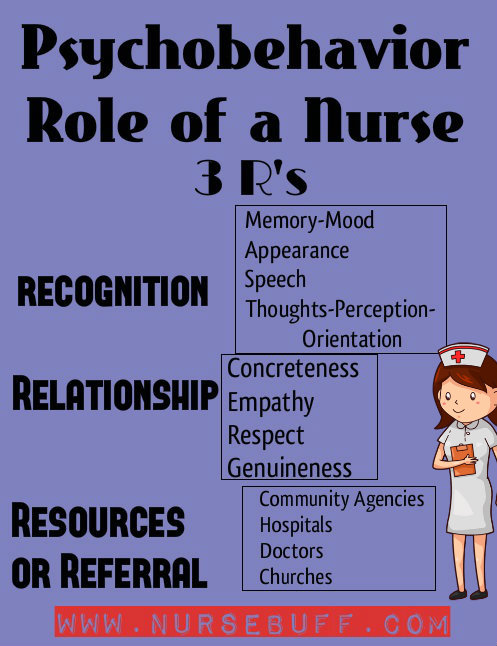
There are 3 Rs in the psychobehavioral role of a nurse- recognition, relationship, and resources or referral. Applying these 3 Rs in the hospital setting is important when counseling patients and their relatives.
8Schizophrenia
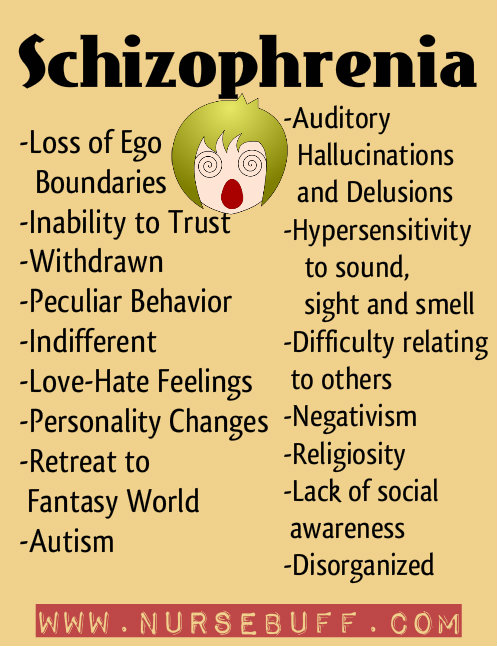
Schizophrenia is a mental disorder where the patient lives in his own unreal world. When assessing your patient, check for the signs above as they are telltale signs of schizophrenia.
9Psychiatric Nursing Map
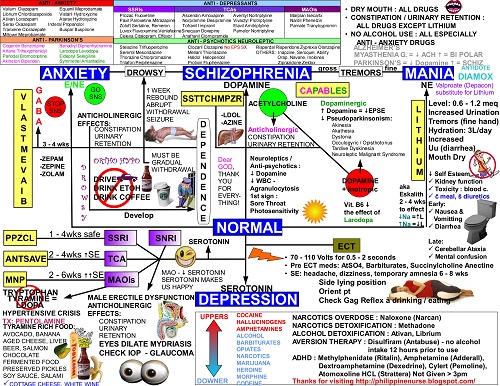
Here’s a compilation of the psychiatric assessment points every nurse needs to know. From normal behavior and anxiety to schizophrenia and mania, you can find this chart helpful during reviews and psychiatric assessments.
10Effects of Psychotropic Medications on Neurotransmitters
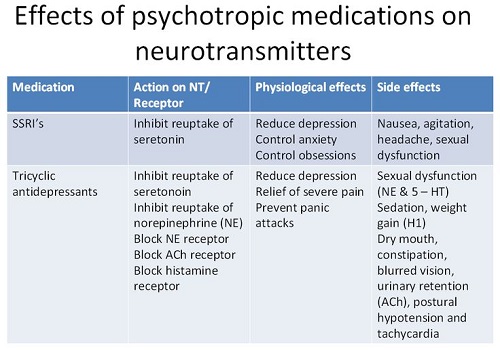
Here is a short table of SSRIs and tricyclic antidepressants. Through this table, you’ll be able to compare the two drug classifications in terms of action on neurotransmitters, physiological effects, and side effects.
Also Read: Laboratory Values and Interpretation – A Nurse’s Ultimate Guide
11Manic Attack

The manic attack is present in a variety of mental disorders, particularly bipolar disorder. It is characterized by agility, abnormally excited and irritable mood, and grandiosity.
12Language of the Eyes
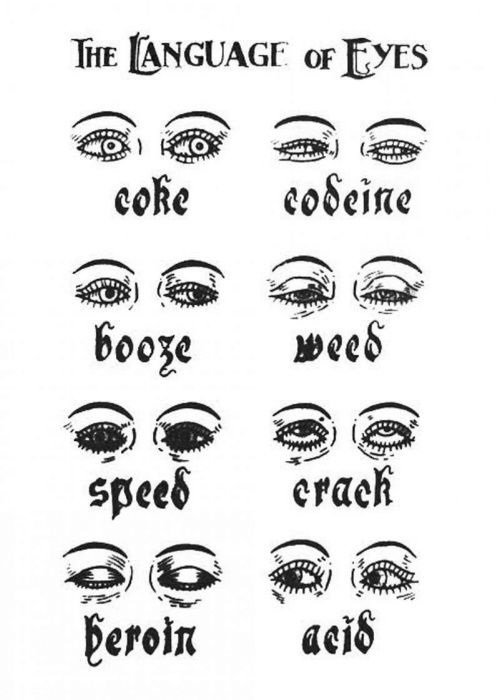
If you are suspecting your patient for drug or substance abuse, here is a chart featuring the different eye presentations of drug/substance abusers. It is helpful in assessment but diagnosis should be supported by other observed signs and symptoms as well as laboratory examinations.
13Alcohol Detox Protocol
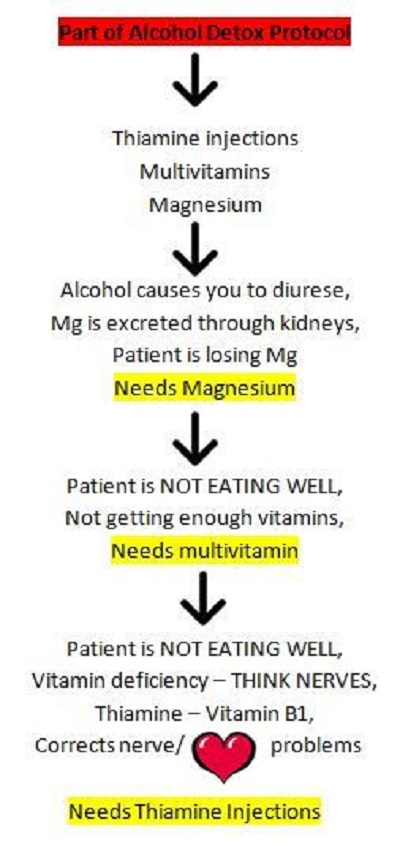
Usually, a patient intoxicated with alcohol needs 3 drugs– magnesium, multivitamin, and thiamine injections. Knowing when to administer these drugs as ordered by the doctor can help you respond quickly to emergency situations.
147 Stages of Grief
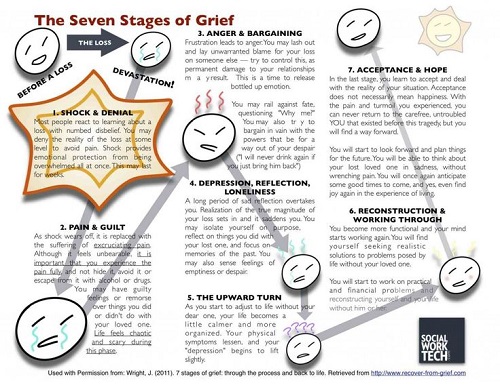
Emotional support is a critical part of caring for psychiatric patients. Check out this diagram to find out how you can deal with patients undergoing the seven stages of grief.
15Between Minds
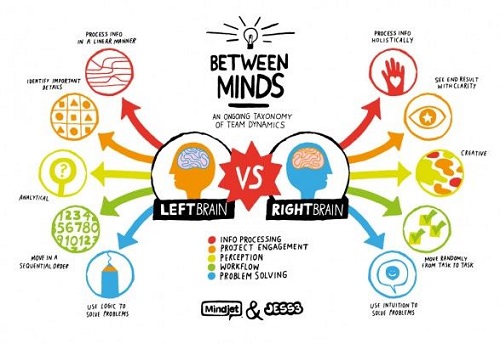
Here is an easy-to-remember diagram of the functions and characteristics of each side of the brain. This is a must-know if you are in the fields of personal development, coaching, and psychiatric care.
16Suicide Attempt Warning Signs
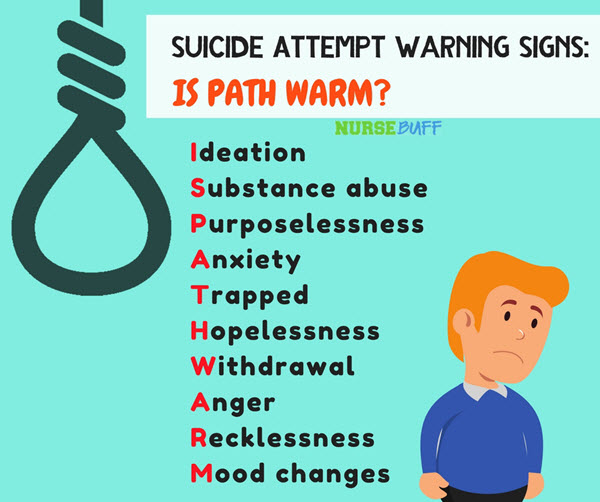
Suicide is hard to predict which is why nurses need to be aware of its warning signs. By paying close attention to your patients and with this guide, you’ll be able to prevent and know when to intervene for your patient’s safety.
17Alcohol Use Screening
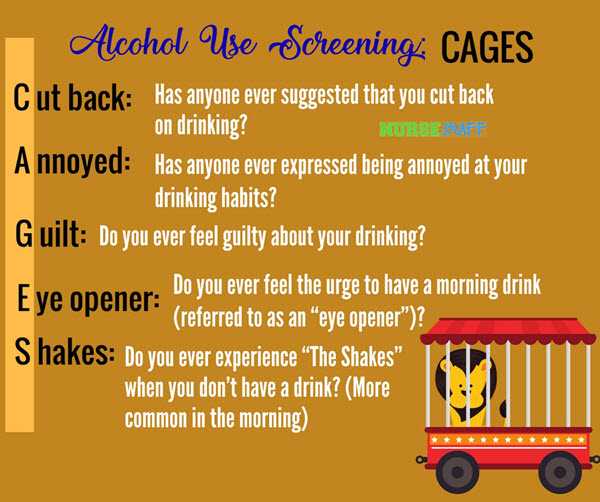
Denial is a common coping mechanism for alcohol users. Because of that, you need to be extra careful during assessment so you can elicit the answers you need to make the right nursing diagnosis and interventions. The image above can guide you on what questions you need to ask your patients.
18Signs of Depression

Depression can interfere with your patient’s daily functioning. Here are the signs you should look out for if you think your patient is depressed.
195A’s of Alzheimer’s Disease
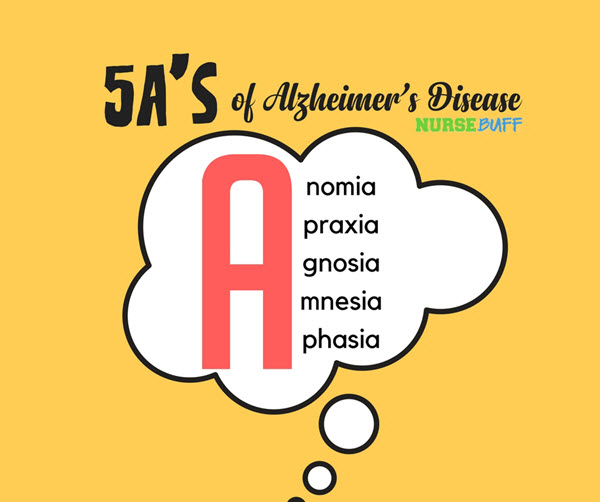
If you are having a hard time describing the symptoms of Alzheimer’s disease, here are the 5A’s you can start with.
20Signs of Anorexia Nervosa
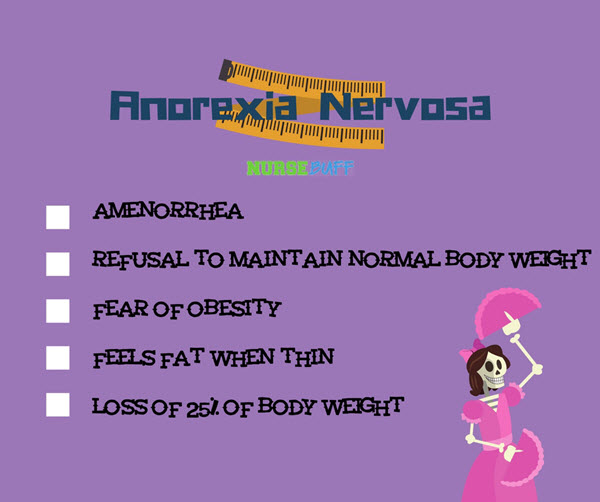
Anorexia Nervosa can lead to serious medical complications. It can put your patient at risk of hypotension, hypothermia, and even death. Watch out for the signs above so you can start your interventions early.



